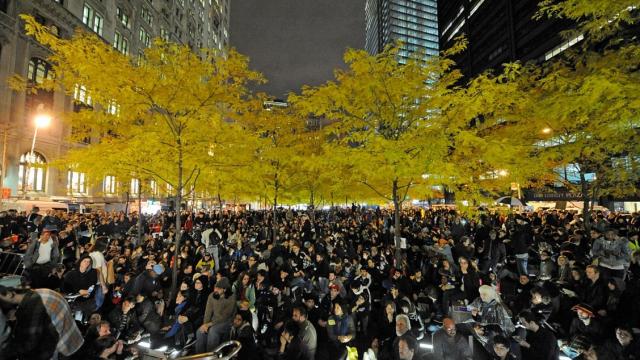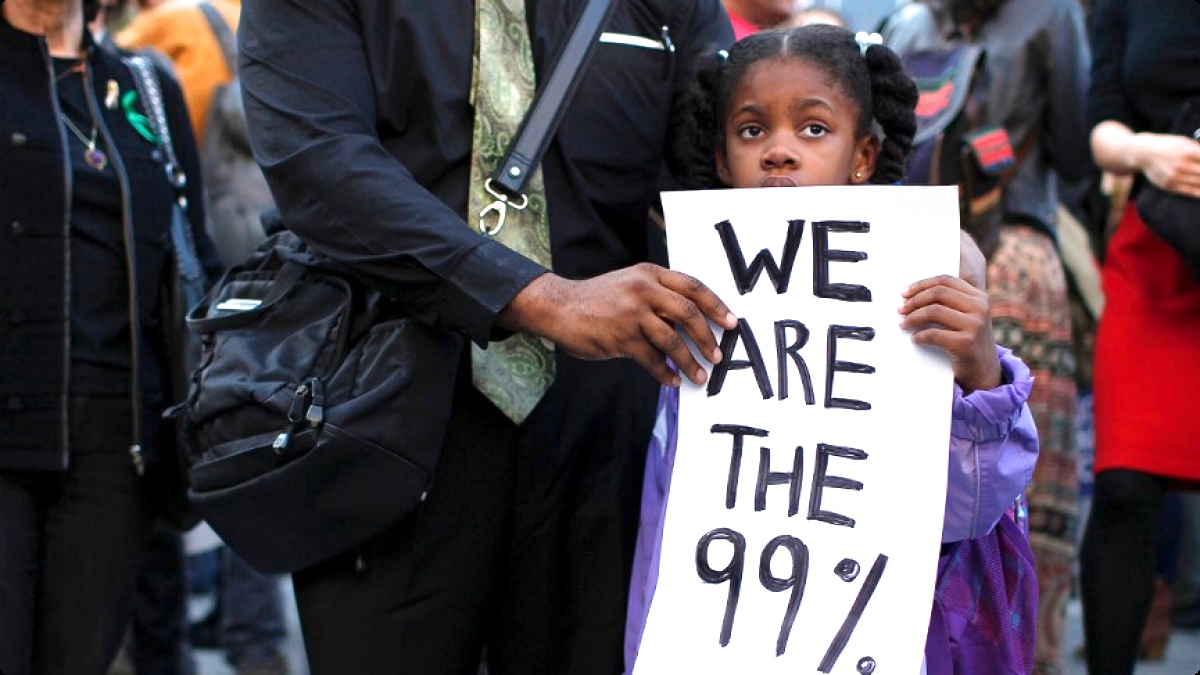
The next time someone says the Occupy movement is dead, ask them this: “Do you really think serious activists for social and economic justice were going to spend the rest of their lives living in tents in parks?”
Maybe you don’t have to be so blunt. But then again, Occupy was blunt. It still is. Five years after Occupy Wall Street began on September 17, 2011, America’s economic and political system is just as in need of structural overhaul. The demands we made then are as urgent today, maybe more so given the millions of people who are still struggling to recover from the 2008 financial crash.
Five years on, The People’s call to redress injustice is fierce, and growing fiercer.
Fortunately, plenty of evidence in recent years suggests that Occupy is far from “dead.” On the contrary, its legacy is building with every social and political movement that is now in ascent – from Fight for $15 to Immigration Reform, from Black Lives Matter to Idle No More, from Student Debt Resistance to Fossil Fuel Divestment.
The Occupy movement has fundamentally changed the political establishment. Two words: Bernie Sanders. Two more words: Elizabeth Warren. These de facto leaders of the new Democratic Party embraced "We are the 99%" and seized the momentum created by the Occupy movement to change not only the conversation, but to alter status quo politics in Washington.
Sure, Bernie was preaching a message of economic and social justice decades before Occupy showed up. And Warren’s political star was already on the rise when she helped found the Consumer Financial Protection Bureau in the months prior to Occupy Wall Street.
But it was the language and energy of the mass movement birthed in Zuccotti Park that propelled Warren into the Massachusetts Senate seat – and Bernie into the position of maverick presidential upstart who nearly unseated Hillary as the Democratic contender. Bernie’s national movement, which captured the votes of 90% of Democrats under the age of 40, will accelerate past the November election, eclipsing the old generation that currently holds power.
His meteoric rise reflects the way that Occupy changed not only the political establishment, but even changed the political process itself. Bernie's campaign platform – getting money out of politics, urgently addressing income inequality, abolishing student debt, railing against the Trans-Pacific Partnership – were also Occupy’s “platform,” such as one existed. Bernie found a way to repackage and repurpose Occupy’s demands into a structural, viable, popular presidential campaign fueled by a grassroots movement that outdid even President Obama’s 2008 run.
Specifically, Bernie climbed his way up with the now-famous $27 average donation, rejecting large corporate and PAC-aligned donors that are the mainstay of mainstream politics. Put differently: Bernie harnessed and rode the energy of the 99%, proving that a new populist politics can field candidates and fund elections.
The fact that the Democratic National Committee pulled out all the stops to prevent anything so radical as a Bernie candidacy from materializing reflects how The People’s needs, and The People’s demands, have moved beyond the ability of the establishment to address them. He helped usher in a structural transformation of campaign finance, which Occupy Wall Street initiated with its vocal critique of Wall Street, the Koch Brothers and the like.
Let’s face it: even Donald Trump has gained from the message echoing from Occupy. His staunch opposition to the TPP and his unrelenting criticism of Hillary’s connections to Wall Street – however hollow in light of his own lifelong membership in the 1% – derived from issues that Occupy brought into living rooms nationwide.
The Occupy movement isn’t finished. Far from it, it’s just getting started. It may call itself by a different name. Many names, in fact. But rest assured, the ideas and passions that drove people to occupy Liberty Square five years ago are strengthening. Far from being dead, the Occupy movement keeps evolving – which is the very definition of being alive.
3 WAYS TO SHOW YOUR SUPPORT
- Log in to post comments



















Comments
Larry replied on
SAYIN' IT LIKE IT IS!
I think this article just sums it up: Occupy is evolving and building—a wave for transformational, structural change taking us into the future.
Tyler replied on
Occupy Capitol Hill
We need to channel all of the energy for the presidential campaign of Bernie Sanders into a massive march to, and occupation of, Capitol Hill in Washington, D.C. We’ve learned this year that voting is not the answer. The oligarchy always wins on that playing field. A new Poor People's Campaign is being planned and their website is poorpeoplescampaign.org.